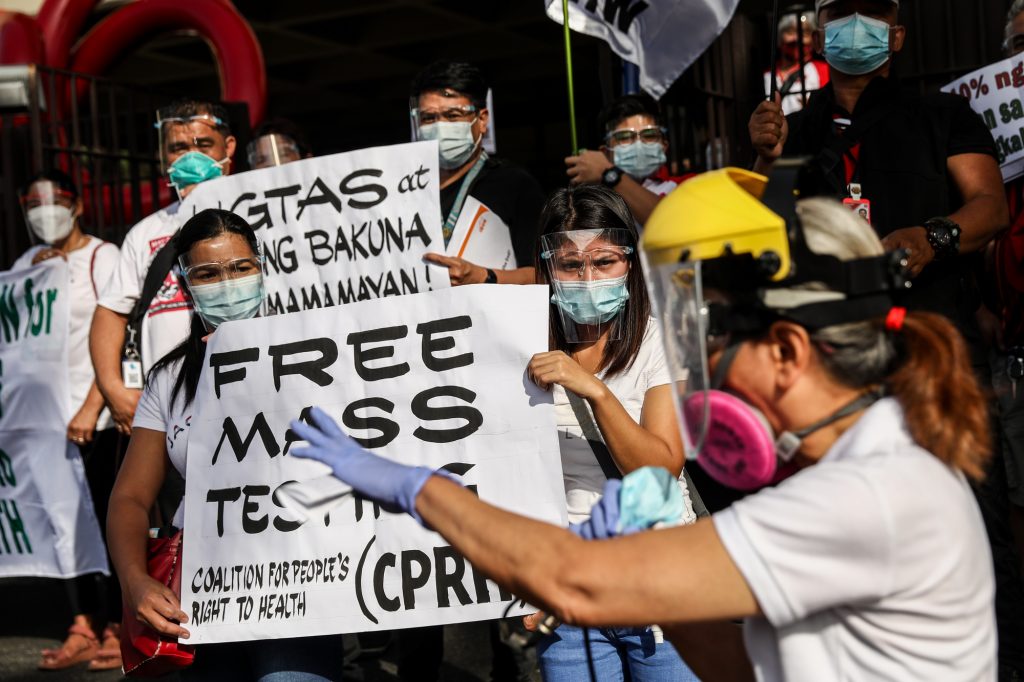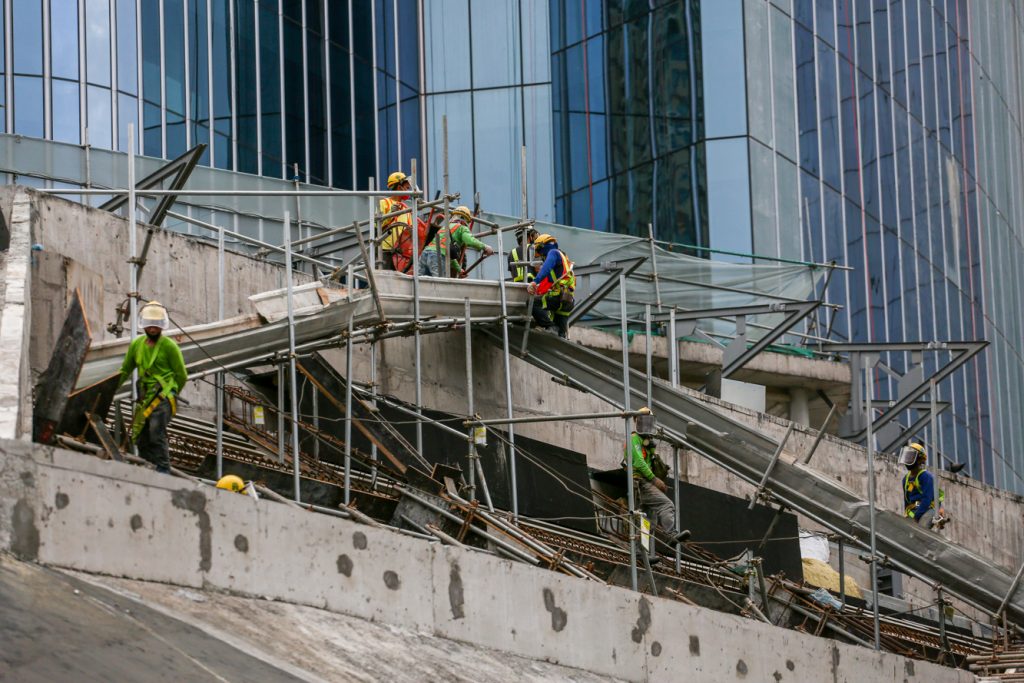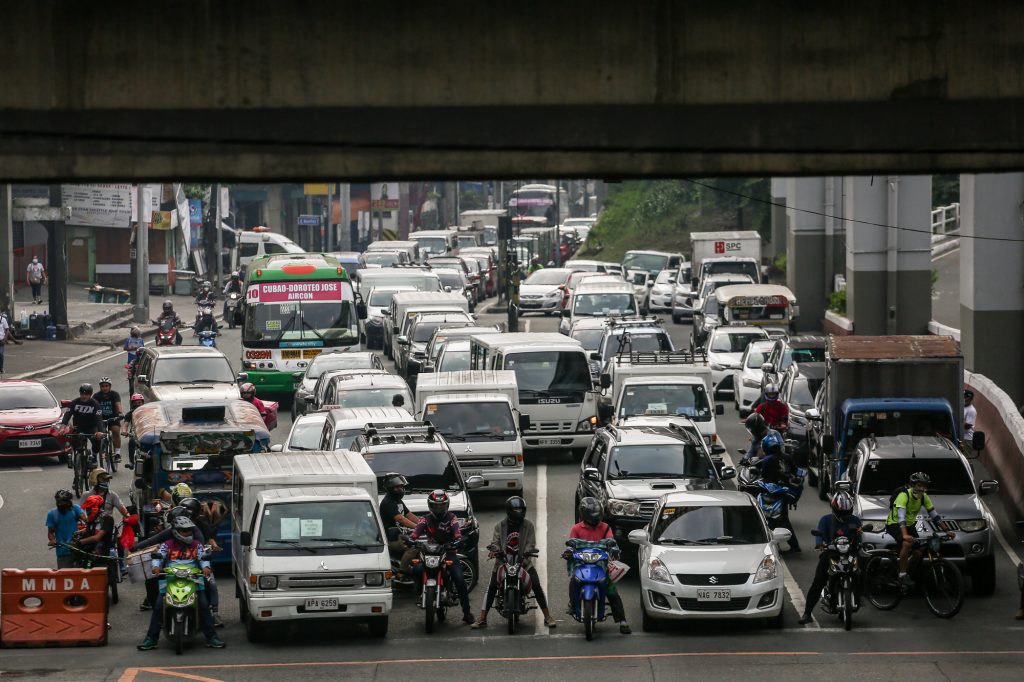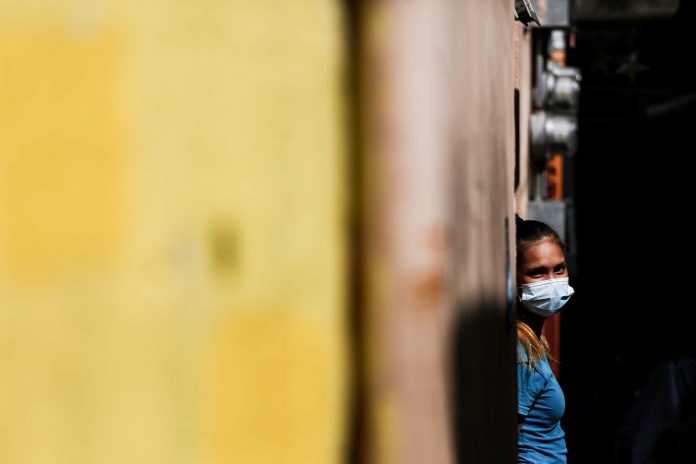From the day Rodrigo Duterte took office in 2019, we’ve all sat as reluctant spectators of this twin nightmares: first, the drug war, next the crackdown on communists.
This ongoing tremor of a pandemic strips us of any chance to push back in a major way, to give as good as we get, as we are left with no guarantees whatsoever as to how and when we’re all going to survive it.
The future gets only bleaker by the minute, now that the virus is on its fourth virulent mutated strain.
The presence of a vaccine gives us hope, but only to the degree that the same doesn’t get in the way of its distribution. It is, however, unfortunate that fairy tales have no place in a world reeking of dystopia and dictatorship.
Thus, it would be totally ill-advised to expect corruption to take a backseat. Why? Because in a time of plague, vaccine is the new legal tender.
Almost all our attempts to reconfigure what have been gravely compromised both by virus and violence, our democratic institutions no less, count for nothing in the face of another problem: an economy that shuffles in and out of lockdown.
It pains me to add the sporadic, yet almost expected, breach of pandemic protocols not only by a populace hard-pressed at making a living, but officials busy making a killing—literally—if only to party overnight.
Never has the force of our patience been so tested than in this brazen display of impunity. The world as we know it has tumbled wrong side up, the only thing more upsetting being our seeming helplessness to help ourselves.
But are we really that helpless? Or have we just missed the point entirely of our struggle?
American abolitionist Frederick Douglass offered a prescription against the gnawing force of a tyrant’s bite: “The limits of tyrants are prescribed by the endurance of those whom they oppose.” Let’s park that line here.
Endurance. The word was first used in the 15th century to mean “continued existence,” or in the Old French, “to make hard”.
It carries the idea of one who can bear prolonged stress or pressure, adversity or challenge. It also rings of the sort of continuity built on permanence, vigor, muscle.
Is it the same as the recoil and flexibility of resilience?
Not quite. Resilience, in my modest opinion, is a by-product of immediate necessity. Endurance, on the other hand, is an upshot of will. It is shaped ‘round the backbone of resolve, chiefly on the bedrock of human volition.

Endurance is a testament to the person’s strength of will to win and overcome, not simply survive. It is fueled, by and large, by the person’s choice to triumph over hurdles, get the better of his situation, even conquer the mountain before him, not merely bounce back by the shove of inertia.
Imagine resilience as a tree bending to the energy of the wind, bouncing back to its original form should the same taper down. In contrast, endurance is akin to spreading your wings and using that opposing gust to soar into the sky.
In brief, what Douglass was saying is that it is the measure of our endurance, that ability to use pressure to soar, which sets the limits to a tyrant’s excesses.
Shaping this principle into practical usage is easier said than done. But as I would always say, it is not impossible.
On a regular day, winning already takes effort, a whole measure and muckle of it. Duterte’s topsy-turvy world makes triumphing over obstacles more painstaking than some of us may have bargained for.
If you’re the type to whimper over a broken fingernail or bruised hands, chances are, in the struggle against authoritarian atrocities, there will be a lot of whimpering, even weeping, along the way. So, brace yourselves.
But I guess lamenting for the right reasons is far better than throwing a mañanita for the wrong ones.
Take for example the weighing of immediate lies against hard-won facts. One need not be reminded that information, being what they are, that is, stemming from sundry sources, must always be subject to scrutiny.

Internet memes do not guarantee authenticity any more than a branded chicken meal assures a customer that there are no cockroach parts between its skins. If we are watchful to the point of checking what we put in our mouths for alien stuff which ought not to be there, shouldn’t we be more cautious with what we put in our minds?
I recall reading a study last year which said that more than 80% of those who share “fake” information via social media fall under the age of 60 and above. Apparently, most senior citizens have the faintest idea of the internet and social media landscape, rendering them virtually blind as to what information is reliable or not.
News websites, for instance, carry time stamps on their pages, the actual names of authors and correspondents, sometimes even their photos. In many of these reliable websites, additional links to information where context can be further gleamed are included in the stories.
This goes without saying that any website which do not carry bylines on their reportage are spreading information under the pretext of these being news. In short, these should not be immediately trusted.
People should also recognize that advancement in photo-alteration technology is now the in-thing. This gives many the ability to modify images in ways that past generations could only dream of doing.
Today, most anyone trained in these applications can alter photographs, images of landscapes, even the identities of people on videos to the point that it’s hard to tell between the altered state and the original.

Thus, if anyone aspires to arriving at a certain fact, one would have to go out of his way to check all the odds and ends of information coming out of the internet. It’s a difficult task, that is certain, but one that no fair amount of curiosity and grit could not achieve.
The pre-Covid days have, by and large, put a wedge between people and the information they were in search of, if at all. Work has always been the most convenient excuse. The largely nine- to twelve-hour shifts, to say little of twin jobs, had repeatedly justified procrastination as the primary hindrance to the search for facts.
To use the same excuse today sounds a bit ludicrous in the main as most of us are holed up in our homes due to the pandemic. Understandably, there will still be those who’d refuse the chance to know the real deal as this would expose them for who they are: if not indifferent on the whole, then followers of this cultic regime.
As election year approaches, that’ll be in 2022, a new consignment of garden-fresh lies would do the rounds of the internet wet market. And this despite of the assurance offered by Mark Zuckerberg that the politization of Facebook would now be a thing of the past.
Elections, it seems, has a way of triggering forked tongues. Once more, we will again be the disgruntled heirs of political promises, of official dole-outs sourced from taxpayers’ money, and a slew of other shenanigans better dubbed as the zarzuela.
However much this regime has terrorized our nation, I remain in my conviction that we deserve better leaders. But more than better leaders, we deserve to go back to the basics of the social contract, which is, among others, self-respect.
To respect ourselves, individually and collectively, enough to know that we deserve the truth. The same self-respect serves as the claw and fang to our endurance.
Tyranny never sleeps. So should we.
Joel Pablo Salud is an editor, journalist and the author of several books of fiction and political nonfiction. The views and opinions expressed in this article are those of the author and do not necessarily reflect the official editorial position of LiCAS.news.









